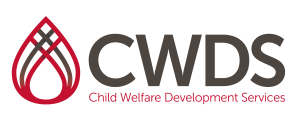CWDS Curriculum
Facilitating Change and Overcoming Resistance Using Motivational Interviewing Techniques
Level: Advanced Practice – Supervisor, Manager
Credits: 6
Intended Audience: This training is a spin off from the training “Enhancing Client Engagement using Motivational Interviewing”. It will provide managers and supervisors with the skills and knowledge on how to facilitate change in their workers who are ambivalence and resistance to change.
Intended Objectives:
- Trainees will learn skills and knowledge on how to facilitate change in their workers who are ambivalent and resistant to change.
- Trainees will learn how to identify ambivalence and understand the role of resistance in a worker’s life.
- Trainees will learn the stages of change and identify which stage their worker is at and how to respond to the worker at that stage.
- Trainees will have knowledge of the four key concepts of motivational interviewing and how to apply those concepts.
- Trainees will learn the three reflective listening techniques.
- Trainees will be able to identify the conversational “traps” that occur in the supervisor/employee relationship.
Topics Include:
- Characteristics of management style
- What is motivational interviewing?
- What is ambivalence?
- What is resistance?
- Stages and characteristics of change
- Avoiding “traps”
- Reflective Listening techniques
CalSWEC Competencies Addressed:
5.5 Student demonstrates understanding of how the strengths perspective and empowerment approaches can positively influence growth, development, and behavioral change.
7.4 Student is aware of organizational risk management issues and is able to prevent or resolve potentially harmful situations.
7.5 Student is able to work respectfully and effectively with clients and agency personnel in an environment characterized by human diversity.
7.6 Student is aware of potential work-related stress factors and is able to develop and advocates for self-care and other strategies to reduce their effects.
7.9 Student is able to utilize collaborative skills and techniques to enhance service quality in organizational settings.
8.5 Student understands how leader/managers use the collaborative process for the purpose of planning, formulating policy, and implementing services.
8.6 Student demonstrates knowledge of how organizational structure, climate, and culture affect service effectiveness, worker productivity, and morale.
Posted In:Supervision and Management



